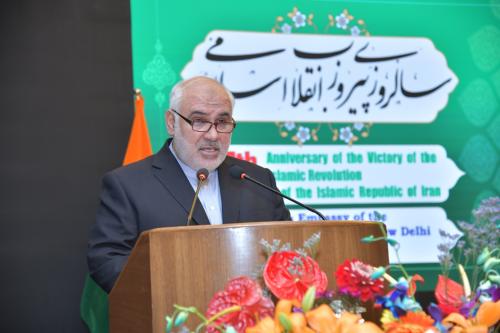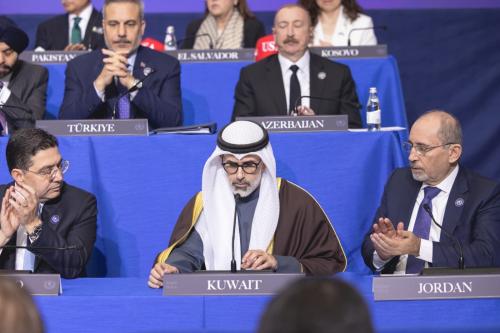New York, Dec 18 (IANS) Five Indian men and a woman have been charged in connection with a transnational technical support scam that targeted more than 20,000 victims, many of them elderly, in the US and Canada. Gagan Lamba, 41, and Harshad Madaan, 34, from New Delhi; Jayant Bhatia, 33, from Ontario, Canada, and Vikash Gupta, 33, from Faridabad, were charged with conspiracy to commit wire fraud, computer fraud, and substantive violations of wire fraud and computer fraud, US Attorney Philip R Sellinger said. Lamba, Madaan, Bhatia, and a fifth defendant, Kulwinder Singh, 34, of Richmond Hill, New York, are also charged with conspiracy to commit money laundering, money laundering, and engaging in monetary transactions in property derived from specified unlawful activity. Bhatia has been charged with offences related to his participation in a high-tech fraud scheme. The sixth defendant, Meghna Kumar, 50, of Edison, New Jersey, pleaded guilty last week to information charging her with engaging in monetary transactions in property derived from specified unlawful activity, based on her role in the scheme. "As alleged in the indictment, the defendants are charged with using access to personal computers to run a high-tech extortion scheme on a global scale," the US Attorney said in a Department of Justice statement. Sellinger said that the scamsters frequently targeted senior citizens and scared them into paying for unnecessary and useless computer repair services. According to documents filed in this case and statements made in the court, the defendants and others were members of a criminal fraud ring that operated a technical support fraud scheme in the US, India, and Canada from 2012 through November 2022. The scheme targeted victims across the US and Canada, including New Jersey, many of whom were elderly, the press statement read. The primary objective was to trick victims into believing that their personal computers were infected with a virus or malware and then convince the victims to pay hundreds or thousands of dollars to the fraud ring for phony computer repair services. Over the course of the conspiracy, the fraud ring generated more than $10 million in proceeds from at least 20,000 victims. The fraud ring caused fraudulent pop-up windows to appear on victims' personal computers. The pop-ups were designed, at times, to "freeze" the victims' computers, which prevented the victims from using or accessing files on their computers. The pop-ups also claimed, falsely, that the victims' computers were infected with a virus, or otherwise compromised, and directed the victims to call a telephone number to receive technical support. Sometimes the pop-ups warned victims to not shut down their computers. In reality, the pop-ups were a hoax, designed to trick the victims into believing that their computers were infected with viruses that did not actually exist. Victims who called the technical support phone numbers appearing on the pop-ups were connected to one or more call centres in India associated with the fraud ring. Fraud ring members at the call centres falsely repeated that the victims' computers were infected with viruses and offered to fix the purported issue for a fee. The fraud ring members would then request permission to remotely access the victims' computers. Once granted access, fraud ring members would, at times, download and run a freely available adblocker tool, advise the victim that the "issue" had been resolved, and then leave a text file on the desktop of the computer with payment instructions. Victims were instructed to pay the fraud ring in amounts ranging from hundreds to thousands of dollars. This was done either by electronically scanning checks made payable to one of several shell companies set up by the fraud ring, or by sending, via FedEx, physical checks to addresses maintained by Singh and Kumar in New Jersey. The Indian authorities had arrested Madaan on December 14, and Gupta a day after on local charges for their involvement in the tech support scheme. While Lamba remains at large, Bhatia was arrested by Canadian authorities pursuant to a provisional arrest request from the United States, the Department of Justice release noted. Singh, who was arrested at his home in New York, made his initial appearance on December 14 before US Magistrate Judge Michael A Hammer in Newark federal court and was released on $100,000 unsecured bond. The wire fraud and computer fraud charges carry a maximum penalty of 20 years and a $250,000 fine, or twice the gross amount of gain or loss from the offence, whichever is greater, the release stated. The money laundering charges carry a statutory maximum of 20 years in prison and a fine of up to $500,000 or twice the value of the property involved, whichever is greater. The transacting in criminal proceeds charges carry a maximum of 10 years in prison and a fine of $250,000, or twice the value of the property involved in the transaction, whichever is greater.
Six Indians charged in multimillion-dollar tech scam in US, Canada
- by Rinku
- December 19, 2022 2 minutes

6 Indians charged in multimillion-dollar tech scam in US, Canada.











